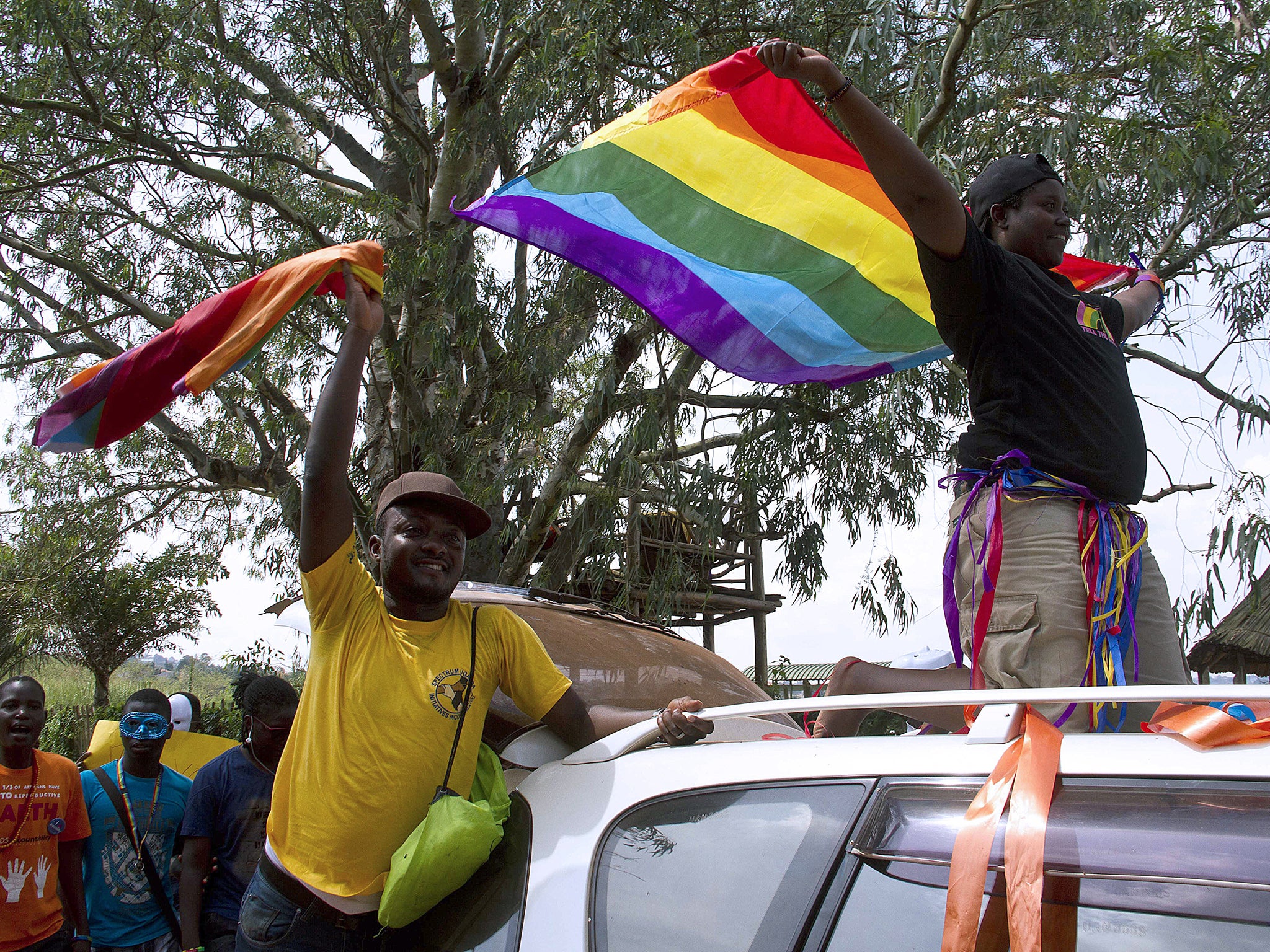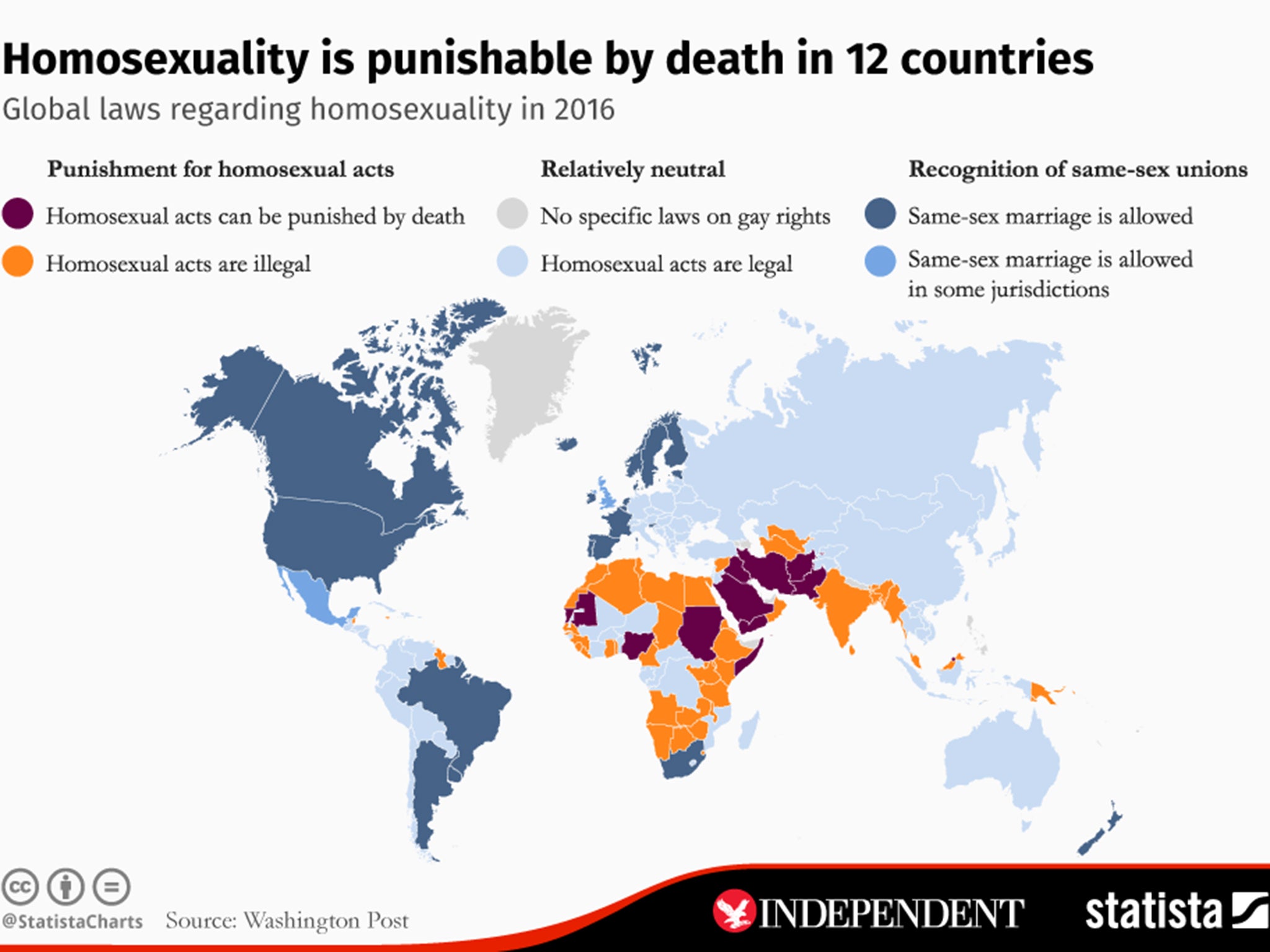Burkina Faso-led African bloc fails second challenge against UN investigator of LGBT discrimination
Campaigners hailed a 'victory for equality'

Your support helps us to tell the story
From reproductive rights to climate change to Big Tech, The Independent is on the ground when the story is developing. Whether it's investigating the financials of Elon Musk's pro-Trump PAC or producing our latest documentary, 'The A Word', which shines a light on the American women fighting for reproductive rights, we know how important it is to parse out the facts from the messaging.
At such a critical moment in US history, we need reporters on the ground. Your donation allows us to keep sending journalists to speak to both sides of the story.
The Independent is trusted by Americans across the entire political spectrum. And unlike many other quality news outlets, we choose not to lock Americans out of our reporting and analysis with paywalls. We believe quality journalism should be available to everyone, paid for by those who can afford it.
Your support makes all the difference.A group of African countries has failed in their second attempt to block a United Nations (UN) expert from working on gender based and LGBT violence.
Thai law professor Vitit Muntarbhorn became the first ever UN investigator with a mandate to examine violence and discrimination against the LGBT communities worldwide when he was appointed in September.
But the bloc of mainly African states led by Burkina Faso, have twice tried to pass an amendment to delay his appointment.
They claimed there "is no international agreement on the definition of the concept of 'sexual orientation and gender identity.'"
After being defeated on the first vote in November, their attempt to delay Mr Muntarbhorn’s appointment was beaten again, by 86 votes to 77, with 16 abstentions, earlier this week.
While gay rights supporters welcomed the result, the close vote reflected deep international divisions on gay rights.
The UN has heightened the focus on LGBT rights in recent years but has faced consistent opposition from some member states, particular those from Africa, the Middle East and China and Russia.
Iran and Saudi Arabia also voted in favour of the amendment. Western and a number of Latin American countries were among those in favour of his appointment.

At least 76 countries enforce laws which discriminate against LGBT people, according to a UN report, including legislation which criminalises consensual same-sex relationships among adults.
US ambassador to the UN, Samantha Power, led the campaign against the amendment.
She said international norms on violence and discrimination based on sexual orientation and gender identity are "well established" and have been referred to in UN statements and resolutions including in the General Assembly and Security Council.
"In reality, this amendment has little to do with questions around the definition of sexual orientation and gender identity," Power said. "Instead, this amendment is rooted in a real disagreement over whether people of a certain sexual orientation and gender identity are, in fact, entitled to equal rights."
Pooja Patel, who manages the organisation's LGBT rights program, called Monday's outcome a victory for equality.
Discrimination and violence faced by lesbian, gay, bisexual and transgender people around the world "is real and needs to be combated," she said, adding the close vote shows how much work is needed to build bridges with many countries.
Additional reporting by AP
Join our commenting forum
Join thought-provoking conversations, follow other Independent readers and see their replies
Comments